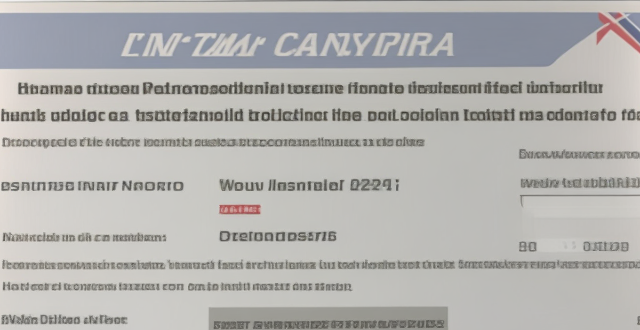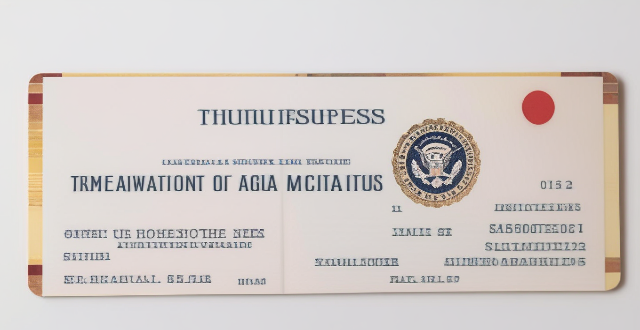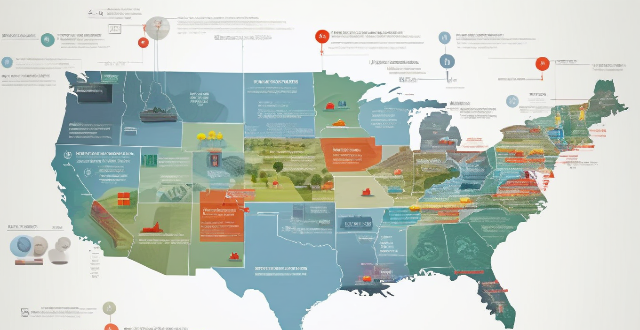Short Visa

Do I need a visa if I'm only staying in the country for a few hours ?
Do I Need a Visa If I'm Only Staying in the Country for a Few Hours? Traveling to a foreign country often involves understanding the visa requirements, even if your stay is only for a few hours. The need for a visa depends on factors such as the purpose of your visit, the duration of your stay, and the specific regulations of the country you are visiting. Some countries offer visa exemptions for brief transit stays, especially if you remain in the airport and do not enter the country's territory. For business meetings or other activities that require leaving the airport, a visa may be necessary regardless of the duration. Countries often have specific rules for visits shorter than 24 hours or even up to 90 days, which may affect visa requirements. Generally, if your stay exceeds the short-term visit limit, a visa will be required. Some countries have agreements that allow citizens of certain nations to enter without a visa for short periods. For layovers or connecting flights, some countries issue transit visas that allow limited time within the country or its airports. To determine visa requirements, research the country's visa policy, consult with the airline, check travel advisories, and contact the embassy directly if unsure. Whether you need a visa for a short stay largely depends on the country's immigration policies and the purpose of your visit. It is essential to research and understand these requirements before traveling to avoid any complications at border control.

What is the validity period of a tourist visa ?
The validity period of a tourist visa varies depending on the country's immigration policies and the type of visa issued. There are two main types of tourist visas: single-entry and multiple-entry. Short-term tourist visas typically have a validity period of up to 90 days, while long-term tourist visas have a validity period of more than 90 days. Several factors can affect the validity period of a tourist visa, including the applicant's nationality, purpose of visit, financial status, and immigration history. It is essential to check the specific requirements and conditions before applying for a tourist visa.

Can I extend my tourist visa once I arrive in the country ?
This article discusses whether it is possible to extend a tourist visa once arriving in a foreign country. It outlines eligibility criteria, steps to follow for extending the visa, and things to keep in mind while considering an extension. The main points include checking purpose of visit, duration of stay, financial capacity, health and safety; gathering required documents; contacting immigration authorities; attending interview (if required); paying fees (if applicable); waiting for approval; obtaining extended visa; timely application; adhering to laws and regulations; seeking professional help if needed.

What are the requirements for a tourist visa ?
The article provides a comprehensive list of general requirements for obtaining a tourist visa, which include having a valid passport, completing a visa application form, providing recent photographs, presenting a detailed travel itinerary, demonstrating financial stability, possessing health insurance, submitting an invitation letter if applicable, explaining the purpose of visit, and possibly offering a police clearance certificate. It emphasizes the importance of checking with the embassy or consulate of the destination country for specific instructions due to variations in requirements among different nations.

How long does it take to process a travel visa ?
The time it takes to process a travel visa can vary significantly depending on several factors, including the country you are applying for the visa, your nationality, the type of visa you are applying for, and how quickly you are able to submit the required documents and information. It is important to research the specific visa processing time for the country you are applying for the visa, as well as your nationality, the type of visa you are applying for, and how quickly you are able to submit the required documents and information. By taking these factors into account, you can better plan for your travel visa application process.

How much does it cost to obtain a tourist visa ?
This detailed guide outlines the cost implications and requirements for obtaining a tourist visa to the People's Republic of China as of July 2024, using the process in the United States as an example. The guide covers visa types, required documents, additional requirements, cost implications, and the application procedure. It also highlights recent simplifications in the document requirements and emphasizes the importance of meeting all specified requirements and being prepared for associated costs.

How can I check the status of my tourist visa application ?
Checking the status of your tourist visa application can be a nerve-wracking experience, especially when you're eagerly anticipating your travel plans. Here's a step-by-step guide to help you through the process: 1. Determine the type of visa you applied for, as different visas might have different checking procedures. 2. Locate the appropriate government website or portal dedicated to visa services where you can check the status of your application. 3. Have your application details ready, such as Application ID Number, Passport Number, and Date of Birth. 4. Enter the required details into the online system on the visa status portal. 5. Submit the form and retrieve the status of your visa application. 6. Interpret the status message, which could indicate that your application has been accepted, is under review, requires administrative processing, has been issued, or has been refused. 7. Follow up if necessary with the embassy or consulate for any delays or further action required. Additional tips include keeping track of timelines, being patient as visa processing times can vary, and staying informed about any events that might affect processing times. By following these steps, you should be able to effectively check the status of your tourist visa application and plan accordingly.

What documents do I need to provide for a tourist visa application ?
The text provides a list of essential documents required for a tourist visa application, including a passport with at least six months' validity and two blank visa pages, recent passport photographs meeting specific requirements, a completed visa application form, a detailed travel itinerary, proof of financial means, an invitation letter if applicable, travel insurance, and a cover letter explaining the purpose of the visit. The text emphasizes the importance of gathering these documents beforehand to make the application process smoother and increase the chances of success. It also notes that specific requirements may vary by country, so applicants should check the documentation needs and specifications for each item.

Is it necessary to have a return ticket for a tourist visa application ?
The text discusses the importance of a return ticket for a tourist visa application. It states that a return ticket is necessary to ensure the traveler has plans to return to their home country after the completion of their trip. Other documents required for a tourist visa application include a valid passport, hotel reservation, travel itinerary, financial evidence, invitation letter, travel insurance, application form, and photo. The return ticket is considered important as it shows the embassy or consulate that the traveler plans to return to their home country after their trip, reduces the chances of overstaying their visa period, assures the authorities of departure arrangements, and maintains the integrity of visa policies. If a traveler cannot provide a return ticket at the time of application, there is a high probability of visa rejection. However, an onward journey ticket can be provided as an alternative. Alternatives to a return ticket include one-way tickets, open-ended tickets, refundable tickets, and onward journey tickets. To ensure the availability of a return ticket, travelers should book in advance, choose flexible dates, opt for refundable tickets, and check with airlines about their policies. Not providing a return ticket can lead to visa rejection, blacklisting, impact future applications, and financial losses. Travel agents can assist in getting a return ticket or suggesting alternatives but may charge additional fees.

How does Japan manage its immigration with its strict policies ?
Japan's Immigration Management with Strict Policies Japan maintains strict immigration policies to protect its cultural identity and ensure the smooth integration of immigrants into society. These policies include visa requirements, a points-based system for evaluating foreign workers, a residence card system, employment regulations, and language requirements. Foreign nationals must obtain a visa unless exempt, and there are different types of visas depending on the purpose of visit. The points-based system assigns eligibility based on factors like age, education, experience, and language skills. Once in Japan, foreigners must register their residence within 90 days and carry a Residence Card at all times. Employers must comply with laws regarding foreign workers' wages, hours, and safety standards. Language proficiency is often required for work or study visas to facilitate communication and integration into Japanese society. Overall, these measures aim to manage immigration legally and harmoniously while contributing positively to Japan's economy and society.

What changes have been made to New Zealand's immigration policy recently ?
New Zealand's recent immigration policy changes aim to address labor shortage and promote economic growth by creating a new visa category, increasing residence visa allocation, simplifying the application process, offering greater flexibility for international students, and reducing processing times.

Can I apply for a tourist visa online ?
Applying for a tourist visa online is convenient and efficient, with requirements including a valid passport and proof of funds. The process involves filling out an electronic form and uploading supporting documents. Payment is typically required through a secure gateway, and approval may require additional documentation or an interview. Processing times vary, so it's important to apply well in advance of travel.

What is the significance of setting short-term versus long-term climate targets ?
The article emphasizes the importance of setting both short-term and long-term climate targets to effectively address climate change. Short-term targets focus on immediate actions, creating urgency, measurable progress, immediate benefits, and building momentum for more ambitious goals. Long-term targets ensure sustainability, deep decarbonization, adaptation, and global cooperation. Achieving these goals is crucial for mitigating the worst effects of climate change and creating a more resilient future.

Is there a difference between short-term and long-term memory in scientific terms ?
Short-term memory and long-term memory are two different types of memory with distinct characteristics. Short-term memory has a limited capacity, typically able to hold around seven items for a brief period, while long-term memory has a large capacity, virtually unlimited, and can store vast amounts of information for an extended period. Short-term memory lasts only for a few seconds unless it is repeatedly rehearsed or transferred to long-term memory, while long-term memory can last for minutes, hours, days, years, or even a lifetime. Short-term memory acts as a temporary holding place for new information, processing it before transferring it to long-term memory, while long-term memory stores information for future use, including facts, experiences, skills, and knowledge. Short-term memory has a faster retrieval speed since the information is readily available in the mind, while long-term memory has a slower retrieval speed as it requires more effort to recall the information from the vast storage. Short-term memory is more susceptible to interference and forgetting due to its transient nature, while long-term memory is more stable and less prone to interference, making it easier to retain information over time. Short-term memory requires rehearsal or encoding processes to transfer information to long-term memory, while long-term memory involves consolidation processes that strengthen neural connections and make the memory more durable.

What is the correlation between immigration policies and entrepreneurship ?
Immigration policies significantly impact entrepreneurship by influencing talent access, regulatory environments, cultural diversity, and economic opportunities. Talent-friendly policies like Canada's Express Entry System and the U.S. H-1B Visa attract skilled immigrants, enhancing competitiveness. Supportive regulatory frameworks, such as Australia's Business Innovation and Investment Program and the UK's Tier 1 Entrepreneur Visa, simplify business establishment processes. Diversity-promoting policies, like New Zealand's Residence Programme and Germany's Blue Card EU, foster innovative solutions through varied perspectives. Economic opportunities arise from policies like Sweden's Startup Visa and Ireland's Startup Entrepreneur Programme, which create market gaps and support immigrant entrepreneurs. Governments should implement policies encouraging entrepreneurship among immigrants and local populations.

Is travel insurance necessary for a short weekend getaway ?
Travel insurance is often considered an optional expense, especially for short weekend getaways. However, it is important to weigh the potential risks and benefits before deciding whether or not to purchase coverage. Here are some factors to consider: ### Potential Risks of Not Having Travel Insurance - **Medical Emergencies**: Accidents can happen at any time, and medical expenses can be costly without insurance. If you have pre-existing health conditions, unexpected complications could arise during your trip that require medical attention. In case of a serious emergency, you may need to be transported to a hospital by air ambulance, which can be very expensive without insurance. - **Trip Disruptions**: Unexpected events like bad weather or mechanical issues can cause flight cancellations or delays, leading to additional expenses for last-minute accommodations and transportation. If your luggage is lost, stolen, or damaged during your trip, travel insurance can help cover the cost of replacement items. If something unexpected happens back home (e.g., a family emergency) and you need to cut your trip short, travel insurance can reimburse you for non-refundable expenses. ### Benefits of Having Travel Insurance - **Peace of Mind**: Knowing that you have coverage for unexpected events provides peace of mind and allows you to focus on enjoying your trip. Many travel insurance policies offer 24/7 emergency assistance services, including medical referrals, legal advice, and translation services. Some policies include identity theft protection, which can be helpful if your personal information is compromised while traveling. - **Cost-Effectiveness**: Travel insurance policies vary widely in terms of coverage and cost, with many options available for short trips. Comparing different policies can help you find one that fits your budget and needs. If you plan to take multiple trips throughout the year, purchasing an annual travel insurance policy may be more cost-effective than buying individual policies for each trip. Consider the potential costs of not having insurance versus the relatively low cost of purchasing coverage. In most cases, the financial burden of dealing with an unexpected event without insurance far outweighs the cost of a policy.

How do I maximize my short weekend trip to a city ?
Traveling to a city for a short weekend trip requires careful planning and prioritization. Research the city beforehand, book accommodations in advance, and plan transportation options. Create a realistic schedule for each day, taking advantage of local resources such as tourist information centers and guided tours. Pack comfortable shoes, light luggage, and necessary electronics. Finally, embrace spontaneous adventures, meet locals, and enjoy the moment to create lasting memories.

How do I teach reading comprehension to young children ?
Teaching reading comprehension to young children is essential for their educational development. Here are strategies for making this process engaging and effective: 1. Start with short, simple texts like picture books, nursery rhymes, or short stories that are age-appropriate and interesting. 2. Make reading interactive by asking questions before, during, and after reading to encourage critical thinking. 3. Encourage vocabulary building by highlighting unfamiliar words and discussing their meanings. 4. Incorporate writing activities such as story maps, character sketches, and sequencing to reinforce comprehension skills. 5. Make learning fun by using games, drama, and music related to the text. Adapt your approach based on the child's interests and abilities to ensure maximum engagement and success.

How can I make the most of a short island vacation ?
To make the most of a short island vacation, start by researching and selecting an island that aligns with your interests. Book accommodations and transportation early to secure centrally located lodging and necessary transport. Create an itinerary with must-see attractions and activities, allocating time for each while leaving room for spontaneity. Pack strategically considering the climate, bringing essentials for outdoor activities, and travel necessities. Wake up early to capture the beauty of the island at dawn and prioritize your bucket list in the morning to avoid crowds. Embrace local culture by trying local cuisine and engaging with locals. Take advantage of downtime for relaxation and capturing memories. Stay safe and healthy by following sun protection guidelines, staying hydrated and nourished, and being mindful of your surroundings.

What is the impact of Brexit on UK immigration policies ?
Brexit has had a significant impact on UK immigration policies, including the end of free movement for EU citizens, the introduction of a points-based immigration system, a settled status scheme for EU citizens, changes in student visa policies, and increased scrutiny of immigration applications. These changes reflect the UK government's desire to regain control over its borders and shape its immigration policies according to national interests.

How does high-intensity interval training (HIIT) affect cardiorespiratory fitness ?
High-intensity interval training (HIIT) is a form of exercise that involves short bursts of intense activity followed by periods of rest or low-intensity exercise. This type of training can improve cardiorespiratory fitness by increasing the heart rate and improving blood flow throughout the body, leading to improved muscle performance and endurance. HIIT also helps to burn calories and fat, making it an effective way to promote weight loss. Additionally, HIIT workouts can be done in a shorter amount of time than other forms of exercise, making it a great option for those who are short on time but still want to stay active and healthy. Overall, incorporating HIIT into your workout routine can provide numerous benefits for your cardiorespiratory fitness and overall health.

Do celebrities often sell their mansions after living in them for a short time ?
Celebrities often sell their mansions after residing in them for a short period due to various factors such as lifestyle changes, financial needs, market conditions, and public perception. Career transitions, personal reasons like marriage or starting a family, liquidity needs, tax implications, real estate market trends, timing the market, privacy concerns, and image management can all influence these quick sales. Notable cases include celebrities selling properties due to constant intrusions by the paparazzi, moving to more rural settings for personal retreats, or downsizing and simplifying their lifestyle after retirement. Media coverage of these events further highlights the occurrences.

What impact do stricter immigration policies have on family reunification ?
Stricter immigration policies have a significant impact on family reunification, causing delays, increased costs, limited opportunities, negative socio-economic impacts, and challenges for children. Policymakers should consider these consequences when developing and implementing immigration policies that affect families.

Are there any restrictions on who can shop at duty-free stores ?
Duty-free shopping offers savings for international travelers, but not everyone can shop tax-free. Eligibility criteria include traveling internationally, being a departing or arriving passenger, having connecting flights outside the country, and complying with quantity limits and customs regulations. Restrictions may apply based on age, nationality, transit status, visa requirements, and security concerns. Understanding these guidelines helps travelers make the most of duty-free opportunities.

What are the latest immigration policies in the United States ?
The latest immigration policies in the United States have been evolving and changing rapidly. Key updates include the public charge rule, asylum policy changes, DACA renewal fees, visa restrictions for pregnant women, travel ban expansion, and migrant children at the border. These policies reflect a trend towards stricter enforcement and restrictions on both legal and illegal immigration. Advocates argue that these policies harm vulnerable populations and undermine America's historical reputation as a nation of immigrants.

What banks and credit card providers support Apple Pay ?
Apple Pay is a mobile payment and digital wallet service that works with Apple devices. It allows users to make secure purchases in person, in iOS apps, and on the web using Safari. Many banks and credit card providers support Apple Pay, including Bank of America, Capital One, Chase, Citi, Wells Fargo, American Express, Discover, MasterCard, and Visa. Adding your card to Apple Pay is a straightforward process involving opening the Wallet app, tapping the plus sign, and following the steps to add a new card. The availability of Apple Pay and the specific cards it supports may vary by country or region, so it's important to check with your bank or card issuer to confirm compatibility and get any necessary instructions.

What are the trends and predictions for the future of international education ?
The future of international education is expected to be shaped by a range of trends and predictions, including: 1. **Increased Demand for Global Learning**: A rise in student mobility and diverse programs catering to specific interests. 2. **Technology-Enabled Learning**: Greater integration of online resources and blended learning models. 3. **Cultural Competence and Global Citizenship**: Emphasis on intercultural skill development and global citizenship education. 4. **Collaborative Partnerships and Exchanges**: More institutional partnerships and multinational collaborations. 5. **Sustainability and Social Impact**: Green campuses and community engagement initiatives. 6. **Personalized Learning Pathways**: Customized education and enhanced career services. 7. **Policy Changes and Regulation**: Potential shifts in visa policies and quality assurance standards. 8. **Financial Aid and Scholarships**: Expanded funding opportunities and alternative financing methods. 9. **Language Diversity**: Recognition of multilingualism and linguistic inclusivity. 10. **Lifelong Learning**: Adaptation of degree programs for non-traditional students and a focus on continuing education.